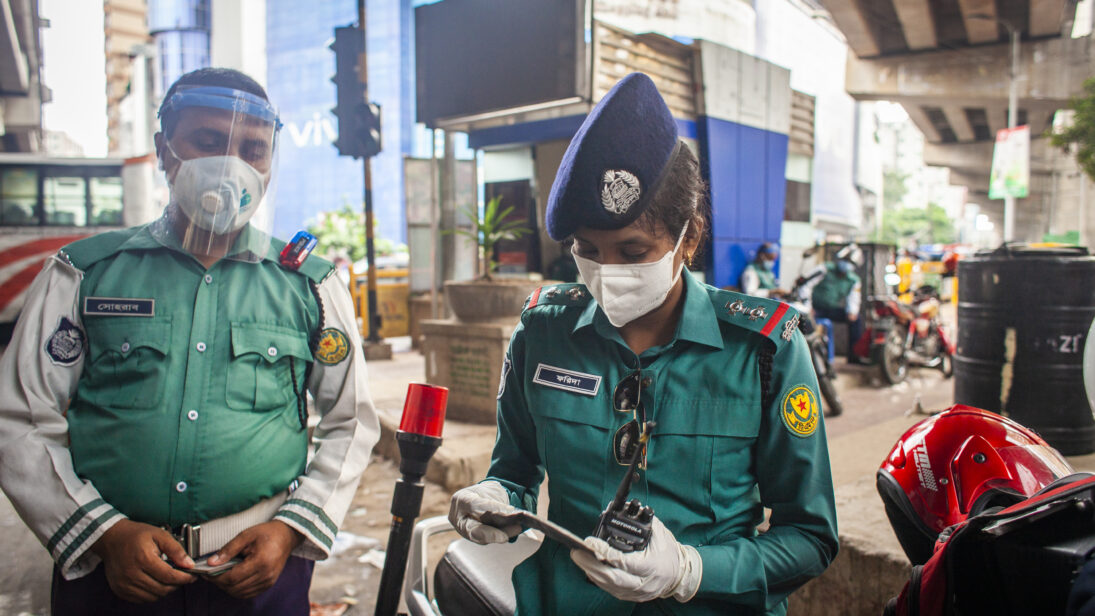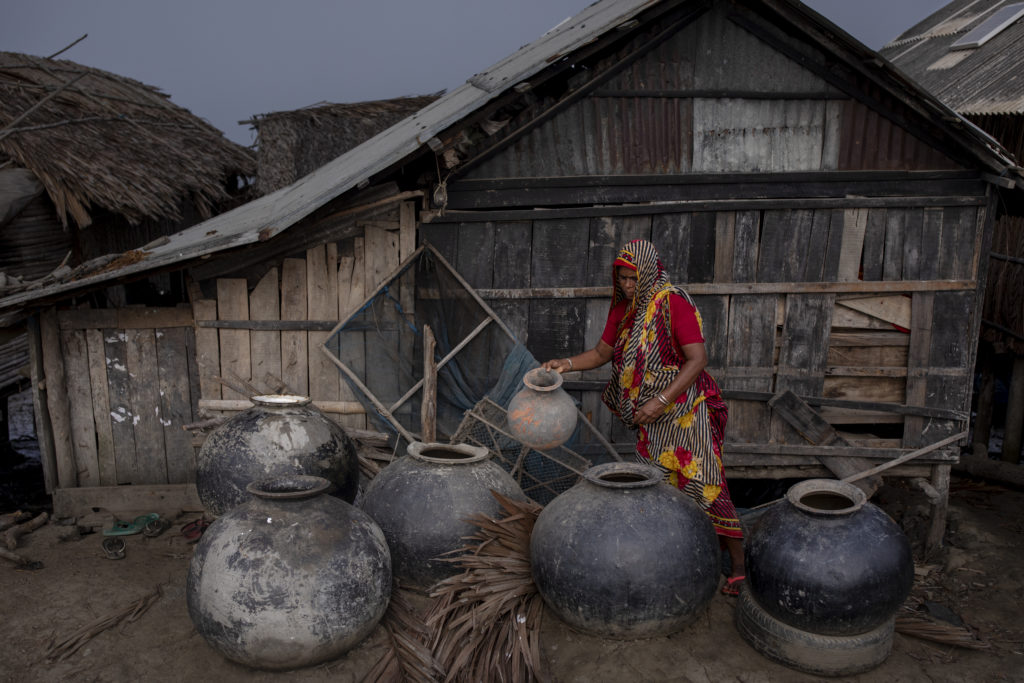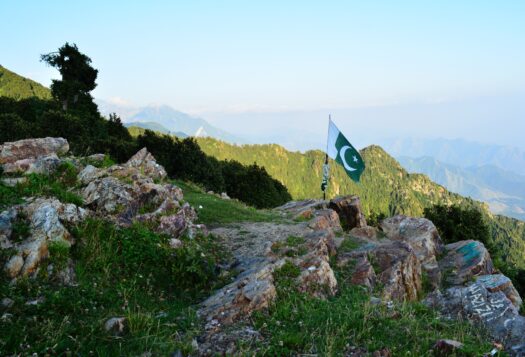
2021 was supposed to be a year of festivities for Bangladesh, as the country celebrates its 50 years of independence. Instead, it had to contend with the worst of the COVID-19 pandemic. However, Bangladesh has exemplified 50 years of admirable economic and social development by showing its resilience through the worst pandemic of the last century. Despite the difficulties, the economy has bounced back remarkably well. Vaccination drives have been largely successful despite limited resources. However, the government still contends with global inflation, balancing geopolitical ties, and rising international pressures over democracy and human rights abuses.
Navigating the Pandemic
Bangladesh has learned to live with COVID-19, despite the virus running rampant and vaccines remaining scarce. The country has encountered over 1.5 million cases of COVID-19, with over 28,000 recorded deaths. Around 25 percent of the population has been fully vaccinated, with over 50 percent receiving one dose. Like the rest of the world, the Delta variant has been the most lethal variant for Bangladesh, with more than 250 deaths per day at its peak. While the first cases of the Omicron variant have been detected, the government’s guidelines for dealing with the virus are unlikely to include strict lockdown measures unless infections rise sharply. Throughout the pandemic, the government has struggled to enforce quarantine mandates. The risks of a sudden rise in infections remain particularly high in the high-density urban city centers of Dhaka and Chittagong, where people rarely wear masks or maintain social distancing.
…Bangladesh has exemplified 50 years of admirable economic and social development by showing its resilience through the worst pandemic of the last century.
The government has made appreciable progress with vaccine deployment, given limited resources. Vaccination efforts had been particularly hampered in April when India reneged on its promised supply of 10 million vaccines. However, Bangladesh gradually resumed its vaccination drive with support from China, the US, Japan, COVAX, the EU, and other countries. Despite initial reservations, public participation in getting vaccinated has been fairly enthusiastic. The government has made efficient use of its Shurokkha app and a walk-in vaccination system for those unable to use technology. Students were among the prioritized groups, ensuring that educational institutions were open by September. Bangladesh must now reduce its reliance on foreign support and start producing its own vaccines. Bangladesh already has a burgeoning pharmaceuticals industry that produces and exports medicines at a low cost. To this end, the government and Incepta, a local pharmaceutical manufacturer, signed an agreement with Sinopharm in August to produce vaccines in the country. As other manufacturers also develop their capacity, Bangladesh will have the opportunity to produce and eventually become a vaccine exporter by 2022.
Economic Progress
After the initial shock of the coronavirus pandemic in 2020, the economy has swiftly bounced back, with production reaching almost pre-pandemic levels despite the Delta variant-induced hiccups along the way. Bangladesh is expected to grow at 7.2 percent in the next fiscal year, leading the economy to surpass USD $500 billion by 2026. The country’s exports for the current financial year have already seen a 13.3 percent year-on year-growth to $15.74 billion. Jobs have recovered as the garments sector experienced an uptick in export orders, consequently hiring more workers. However, the sourcing of raw materials remains a key concern as Chinese factories continue to operate at low capacity due to pandemic restrictions.
Remittances—which constitute one of the key drivers of the economy—have seen lower growth rates due to fewer work opportunities, higher costs of traveling, and pandemic-related restrictions. Following global trends, inflation has been on the higher side, reaching its 12-month peak of 5.7 percent in October. This has further put pressure on the country’s import payments and exchange rate, consequently lowering the foreign currency reserves. While Bangladesh has previously been largely immune to global economic volatility, the government needs to be watchful against undoing its post-pandemic economic recovery efforts.
Foreign Policy
Bilateral relations with the United States turned strenuous towards the end of the year, with the United States imposing visa restrictions on six senior-most officials of Rapid Action Battalion (RAB)—Bangladesh’s top anti-crime unit. The U.S. cited over 600 disappearances since 2009 and nearly 600 more extrajudicial killings since 2018 by RAB and other law enforcement agencies. This included opposition party members, journalists, and human rights activists. The government had already been facing increasing international pressure concerning human rights abuses and corruption, particularly with the release of an investigative documentary by Al Jazeera that highlighted the corruption of the country’s Army Chief, General Aziz Ahmed, and his ties to the Prime Minister herself.

While such restrictions are not unusual for the United States, the timing and the grouping forebodes concern about the U.S. approach towards the region. The restricted officials have been grouped with those from China, Myanmar, and Korea, while officials from many other countries with arguably worse human rights violations have been ignored. This will likely prompt China to attempt alleviating tensions by strengthening its ties with Bangladesh, as it tries to expand its influence in the Indian Ocean region. However, Bangladesh’s relationship with China has not been easy. Earlier in May, the Chinese ambassador to Bangladesh warned against joining the Quad alliance, which could “substantially damage” the bilateral relations. While Bangladesh responded curtly, citing its sovereignty and independence on foreign policy, it increasingly finds itself in a tricky situation trying to manage its ties with the US, China, and India.
Prime Minister Sheikh Hasina did not mince her words during the COP26 summit, calling for the global community to do more for affected countries like Bangladesh, rather than making empty pledges. She asked for the wealthy nations to honor their promise of providing USD $100 billion annually towards fighting climate change. In addition to the lack of funding, Bangladesh has also contended for a greater balance in monetary allocation between climate change adaptation and mitigation. Wealthy nations channel over 75 percent of the funding towards mitigation—a key priority for them, while Bangladesh needs to focus more on climate change adaptation.
Politics at Home
The local political environment has mostly stayed the same as the top opposition party, BNP, remains subdued as the government reinforced its position at all levels. BNP has been completely nullified from the grassroots levels with over 180,000 legal cases against four million members of the party. The party’s leader, Khaleda Zia, who had been sentenced to 10 years in prison for corruption charges, fell significantly ill in recent months. However, the government has refused to let her get better treatment out of the country, citing that she might flee like her son in London. However, her demise due to a lack of care could potentially catalyze the opposition members to fight back against the government, which has continued to stymie democracy.
Golden Jubilee of Bangladesh
Bangladesh celebrates its 50th year of independence in 2021. Bangladesh started its journey as an independent nation facing famine, devastating cyclones, and civil conflict that saw the killings of national leaders, including the father of the nation, Sheikh Mujibur Rahman. At the time, 80 percent of the country’s population lived in extreme poverty. The country was dismissed as a “Basket Case” by Henry Kissinger, then US foreign secretary. Bangladesh has come a long way since then, making exemplary progress in social and economic development. The country’s GDP growth has been consistently among the highest over the last few decades, showing impressive resilience to all global economic shocks. A large population has been Bangladesh’s greatest asset, as it leveraged cheap labor prices to develop its RMG industry, which is only second to China in global exports.
While Bangladesh has made significant strides, it has a long way to go to improve its democracy, institutional strength, and good governance.
Bangladesh has been one of the best performers in the Millennium Development Goals (MDGs), making remarkable progress in reducing extreme poverty, improving sanitary conditions, furthering women empowerment, increasing primary and secondary education enrollment, and reducing child and maternal mortality, among others. The NGO sector has been a major driver of this progress, supporting the government with the delivery of major public services.
The country’s handling of the Rohingya crisis further speaks to its resilience, as it currently houses over a million Rohingyas in Cox’s Bazar, despite being the 8th largest populous country in the world. There have however been a few challenges along the way, particularly the government’s alleged forced transfer of the refugees to the remote Bhashan Char island and the rise of crimes within the Rohingya communities.
Bangladesh’s per capita income today has surpassed India and Pakistan—the country it got liberated from originally. Bangladesh has already graduated from being a Least Developed Country (LDC), scheduled to become a developing country in 2026.
While Bangladesh has made significant strides, it has a long way to go to improve its democracy, institutional strength, and good governance. The current Awami League government has been in power for three terms, with the last two elections tainted by serious allegations of vote-rigging. While the country is no longer as corrupt as it was two decades ago, it still ranks among the top 26 in the perceived levels of public sector corruption in the world. Bangladesh’s lack of political freedom and corruption has weakened institutional strength across all sectors. These challenges have become pronounced as Bangladesh has grown as a key player in global geopolitics. The country has thus far diligently balanced interests and support from global superpowers like the United States, India, China, and Russia. The government’s navigation of China’s alleged “debt-trap diplomacy” has been particularly laudable. While progress so far has often confounded global experts, the next era will definitely be more challenging. How well the country deals with this will largely depend upon its ability to strengthen its institutions, improve democracy, and protect the people’s freedom of rights and speech. Until then, Bangladesh stands as a laudable model of development for struggling countries.
***
Image 1: UN Women via Flickr
Image 2: International Monetary Fund via Flickr


